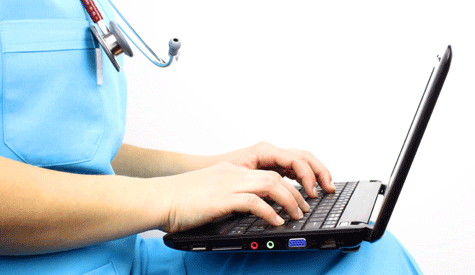Technology plays an integral, innovative role in healthcare, from improving diagnoses and medication allocation to changing the entire science of transplants and surgeries. Some advancements benefit a select few in seemingly unbelievable ways while others affect the care of almost every patient.
Electronic Medical Records

Electronic medical records are changing healthcare for the better even as you read this. A patient no longer needs to repeat the same battery of tests each time he or she sees a new doctor or visits a new hospital. This is less stressful, but also less expensive, benefiting both the patient and the healthcare provider.
For doctors, nurses, and other healthcare providers, efficiency is always important. Though it may sound dramatic, saving time can literally mean the difference between life and death. Immediate access to records will allow providers to treat patients much more quickly and see more patients as well. In terms of care, having at the doctor’s fingertips statistics such as weight, age, pre-existing conditions, medications, and allergies is profoundly beneficial to patients.
Improved Individualized Treatment
More and more, healthcare professionals are tailoring care to each of their patients. This individualized treatment will typically involve a team of professionals including nursing assistants, licensed practical nurses, registered nurses, qualified nurse practitioners, and doctors, all working together to design the most effective treatment plan for each patient.
Keeping electronic records, turning to online forums, and even staying in touch via technology help this happen. It is hugely beneficial for geriatric patients as well as patients with chronic and acute illnesses . This type of care, which can treat everything from broken bones to respiratory diseases, requires close relationships between the healthcare providers and patients.
Real-Time Diagnoses
Healthcare professionals now rely heavily on specially designed apps and programs that keep them in touch with their patients on a near-constant basis.
Healthcare professionals while outside of a hospital or office setting are able to view X-rays and MRI scans, diagnose and study symptoms and signs of illness, and confer with patients. The practice of using mobile technology also encourages collaboration. All the members of the team can easily share and receive information about a particular patient, which can improve care inside and outside of the office.
Medicine has come so far from where it was as recently as ten years ago, and continuing advances improve healthcare every day. This helps save and improve lives. However, as we come to rely more and more on technology, it’s more important than ever to staff the healthcare industry with intelligent, empathetic, and enthusiastic people.
Have you personally experienced any benefits from a particular technological advancement?

